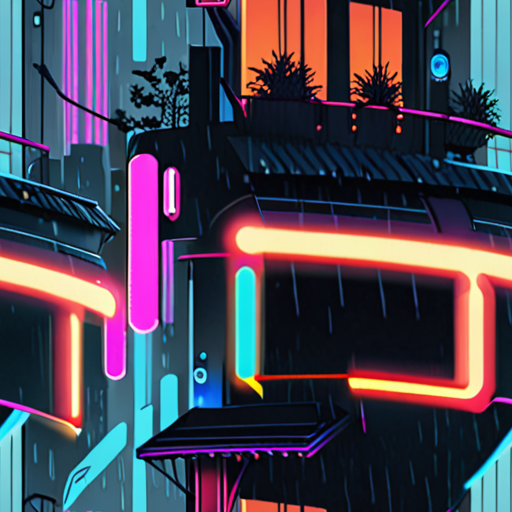Immersive soundscapes are a crucial element in creating an engaging gaming experience, drawing players into the virtual world and heightening their emotional connection to the game. However, crafting these sonic landscapes requires a deep understanding of soundtrack composition for games, a complex process involving the strategic combination of music, sound effects, and audio formats to evoke the desired mood and atmosphere.

Starting to Compose Music for Games
As an indie game developer, I’ve often found myself struggling to create music that complements my game’s atmosphere and enhances the player’s experience.
- Understanding the Game’s Tone and Genre
- Identifying Key Elements
- Creating a Mood Board
- Developing a Composition Plan
- Choosing the Right Instruments
- Synthesizers
- Orchestral Instruments
- Electronic Drums
- Experimenting with Different Styles
- Incorporating Cultural Influences
- Using Sound Effects
- Collaborating with Other Musicians
- Sharing Ideas and Feedback
- Respecting Each Other’s Opinions
- Finalizing the Score
- Balance Volume Levels
- Add Transitions and Pacing
To begin composing music for your game, it’s essential to understand its tone and genre. This will help you determine the type of instruments, melodies, and harmonies that will fit perfectly into your game.
Consider the game’s storyline, characters, and setting. Think about how these elements can influence the mood and atmosphere of your music.
Making a mood board can help you visualize the emotions and feelings you want to evoke through your music. Gather images, colors, and textures that reflect the game’s tone and atmosphere.
Once you have a clear understanding of the game’s tone and genre, develop a composition plan. Determine the types of instruments, melodies, and harmonies that will work well together.
The choice of instruments can greatly impact the overall sound and feel of your game’s music. Consider the following options:
Synthesizers offer a wide range of sounds and can be used to create everything from simple melodies to complex harmonies.
Orchestral instruments such as violins, cellos, and pianos can add a touch of elegance and sophistication to your game’s music.
Electronic drums can provide a modern and edgy sound that works well for fast-paced action games.
Don’t be afraid to experiment with different styles and genres. Try combining elements from various musical traditions to create something unique and captivating.
Cultural influences can add depth and richness to your game’s music. Consider incorporating traditional instruments and melodies from around the world.
Sound effects can be used to enhance the overall audio experience of your game. Experiment with different sound effects to find the perfect balance between music and sound design.
Collaborating with other musicians can bring fresh ideas and perspectives to your composition process. Consider working with a composer, musician, or sound designer to create a truly unique soundtrack.
Open communication is key when collaborating with others. Share your ideas and feedback regularly to ensure everyone is on the same page.
Remember that collaboration is a two-way street. Respect each other’s opinions and be willing to compromise when necessary.
Once you’re happy with your composition, it’s time to finalize the score. Make sure to:
Adjust the volume levels to ensure that the music doesn’t overpower the gameplay or dialogue.
Use transitions and pacing to create a sense of drama and tension. This will keep players engaged and invested in the game.
By following these steps, you’ll be well on your way to creating a memorable and engaging soundtrack for your game.
Game Music Composition
As a composer, I’ve had the opportunity to work on various game projects, and I’ve learned that there’s no one-size-fits-all approach to composing game music.
- The Role of the Composer
- DAWs and Live Musicians
- Indie Dev Games and Game Music Composition
In most cases, the composer is responsible for creating the soundtrack, which includes writing the music, recording it, and mixing it.
Some composers use digital audio workstations (DAWs) to create the final track, while others will hand off their written score to a group of live musicians and use the MIDI track as a reference.
At Indie Dev Games, we understand the importance of having high-quality soundtracks for our games.
- Key Elements of Game Music Composition
When composing game music, there are several key elements to consider:
- Theme and atmosphere
- Mood and emotion
- Pacing and tempo
- Instrumentation and arrangement
Composers often use a variety of tools and software to create and edit their music, including:
- Digital audio workstations (DAWs)
- MIDI sequencers
- Synthesizers and virtual instruments
- Audacity and other free audio editing software
To ensure that your game music is effective and engaging, follow these best practices:
- Create a cohesive soundtrack that complements the game’s theme and atmosphere
- Use a mix of familiar and unfamiliar sounds to keep the player engaged
- Vary the pacing and tempo to match the game’s action and intensity
- Experiment with different instrumentation and arrangements to find the perfect fit for your game
If you’re interested in learning more about game music composition, check out these resources:
- Audioblocks Game Music Composition Tips
- Game Audio Network Guild
- Indie Game Music Soundtrack
By following these guidelines and best practices, you’ll be well on your way to creating a soundtrack that enhances the gaming experience and sets your game apart from the competition.

Video Game Soundtrack Composers’ Salaries
As an indie game developer, understanding the compensation for video game soundtrack composers can significantly impact project planning and budgeting.
- The average hourly rate for video game composers in the United States ranges from $1,250 to $2,308, according to recent data.
- However, the majority of composers fall within the 25th percentile ($1,683) to the 75th percentile ($2,019).
- Indie game developers may find it challenging to compete with larger studios in terms of salary offerings, but there are opportunities to collaborate with emerging talent and negotiate rates based on project scope and requirements.
- Some notable platforms for discovering and hiring freelance composers include AudioJungle, Musicbed, and Epidemic Sound.
- When working with independent composers, consider factors such as their portfolio, experience, and ability to meet deadlines to ensure a successful collaboration.
- Additionally, consider the costs associated with music licensing, royalties, and copyright fees when incorporating original soundtracks into your games.
- By understanding these aspects, indie game developers can make informed decisions about their project budgets and composer collaborations.
For more information on game development resources and tips, visit our game development hub .

Software Used for Composing Video Game Music
I use several digital audio workstations (DAWs) to compose video game music.
-
Audacity
Audacity is a free, open-source DAW that offers a user-friendly interface and a wide range of features, making it an excellent choice for beginners and experienced composers alike.
-
Cubase
Cubase is a professional-grade DAW developed by Steinberg, known for its high-quality sound and robust feature set.
-
FL Studio
FL Studio is a popular DAW among electronic music producers and video game composers, offering a vast library of plugins and effects.
-
Logic Pro X
Logic Pro X is a professional DAW developed by Apple, featuring a sleek interface and advanced editing tools.
-
MuseScore
MuseScore is a free, open-source music notation software that allows composers to create and edit sheet music.
-
Reason
Reason is a virtual studio rack that enables composers to create and arrange sounds using a variety of instruments and effects.
-
Sonar
Sonar is a professional DAW developed by Cakewalk, offering a wide range of features and a user-friendly interface.
-
Steinberg Cubase
Steinberg Cubase is a professional-grade DAW that offers a wide range of features and a user-friendly interface.
-
Traverso DAW
Traverso DAW is a free, open-source DAW that offers a user-friendly interface and a wide range of features.
When choosing a DAW, consider factors such as ease of use, feature set, and compatibility with your computer system.
As a composer, it’s essential to find a DAW that meets your needs and helps you create high-quality music for video games.
Choosing the Right DAW for Game Music
I’m often asked what digital audio workstation (DAW) I recommend for creating game music, and my answer is always the same: it depends on your specific needs and preferences.
- Popular Options
- Reaper: A popular choice among game audio professionals, Reaper offers a wide range of features and plugins, making it an excellent option for those who want a high degree of customization.
- Pro Tools: Industry-standard software widely used in professional recording studios, Pro Tools is known for its advanced editing capabilities and seamless integration with other Avid products.
- Nuendo: Another powerful DAW developed by Steinberg, Nuendo offers advanced features like surround sound mixing and scoring tools, making it ideal for large-scale game productions.
- Indie-Friendly Alternatives
- Ableton Live: While primarily used for electronic music production, Ableton Live has gained popularity among game composers due to its intuitive interface and flexible workflow.
- Cubase: A professional-grade DAW developed by Steinberg, Cubase offers a wide range of features and plugins, making it suitable for both small and large-scale game productions.
- Key Considerations
- Platform compatibility: Make sure the DAW you choose is compatible with your operating system and hardware configuration.
- Feature set: Consider the types of effects, plugins, and instruments you need to create your game music.
- User interface: Think about how comfortable you are with the DAW’s layout and navigation.
- Getting Started
- Experiment with free trials or demos to get a feel for each DAW.
- Watch online tutorials and join online communities to learn from experienced users.
- Join online forums and discussion groups to connect with other game audio professionals and stay updated on the latest trends and best practices.
Ultimately, the best DAW for game music is the one that fits your unique needs and workflow. Take the time to explore your options, and don’t be afraid to try out different software until you find the perfect fit.

What Audio Format Do Games Use?
In the world of game development, choosing the right audio format can make a significant difference in the overall gaming experience.
- WAV Files: WAV files are widely supported and offer high-quality audio, making them a popular choice among game developers.
- MP3 Files: MP3 files are compressed, which reduces file size and makes them ideal for online games or those with limited storage space.
- FLAC Files: FLAC files offer lossless compression, preserving the original audio quality while reducing file size.
When it comes to game development, it’s essential to consider factors like file size, compatibility, and audio quality.
- File Size: Smaller file sizes can reduce loading times and make games more accessible on lower-end hardware.
- Compatibility: Choosing a widely-supported audio format ensures that games can run smoothly across various platforms.
- Audio Quality: High-quality audio enhances the gaming experience, drawing players into the game world.
At Indie Dev Games, we recommend using WAV, MP3, or FLAC files for game development, depending on the project’s specific needs.
Choosing the Right Audio Format for Your Game
Consider the following factors when selecting an audio format:
- Game Genre: Different genres require unique audio styles, such as immersive soundscapes for RPGs or fast-paced sound effects for FPS games.
- Target Audience: Understand your target audience’s preferences and technical capabilities to choose an audio format that suits their needs.
- Platform Requirements: Ensure the chosen audio format meets the requirements of the target platforms, such as PC, console, or mobile devices.
Conclusion
The right audio format can elevate the gaming experience, and understanding the options available is crucial for game developers.
By considering factors like file size, compatibility, and audio quality, developers can choose the perfect audio format for their game, resulting in a more engaging and immersive experience for players.




0 Comments